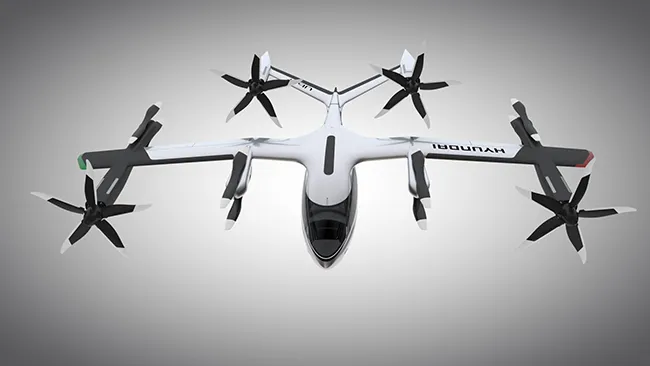Hyundai has entered an agreement to develop Uber’s air taxis as – the companies hope – the concept of ride-share takes to the skies.
January 16, 2020
Read time: 1 min

Hyundai is to produce and deploy the flying vehicles while Uber will provide airspace support services, connections to ground transportation and customer interfaces through an aerial ride-share network.
As part of the deal, Hyundai unveiled an air taxi vehicle concept at CES 2020 in Las Vegas which it says is designed for a cruising speed of 180mph, cruising altitude of around 1,000-2,000 feet and trips up to 60 miles.
The electric vehicle can carry up to four passengers and is expected to recharge in five to seven minutes.
The air vehicle concept was created partly through Uber’s open design process, a NASA-inspired approach which publicly releases vehicle design ideas so companies can use them to build their own models.







